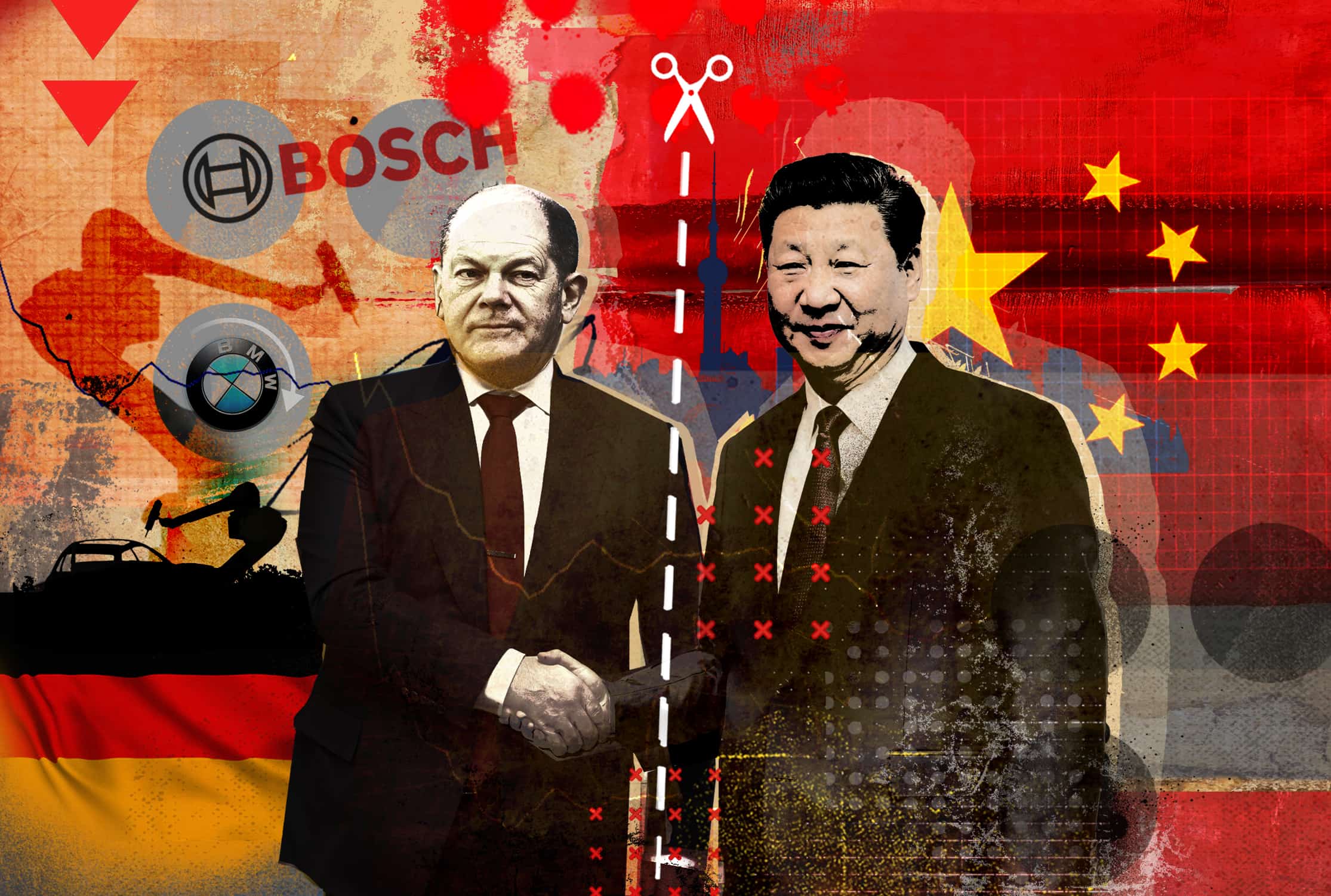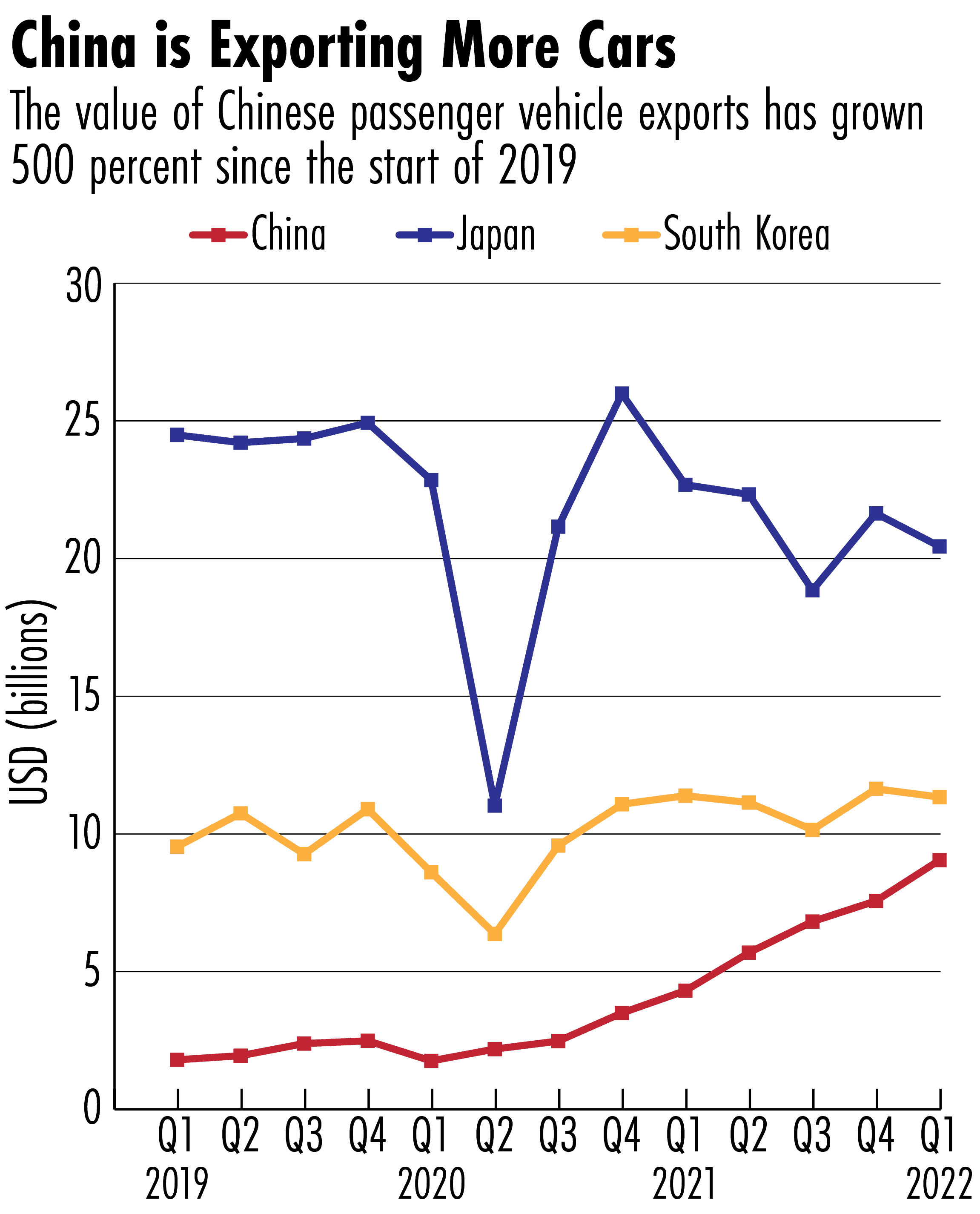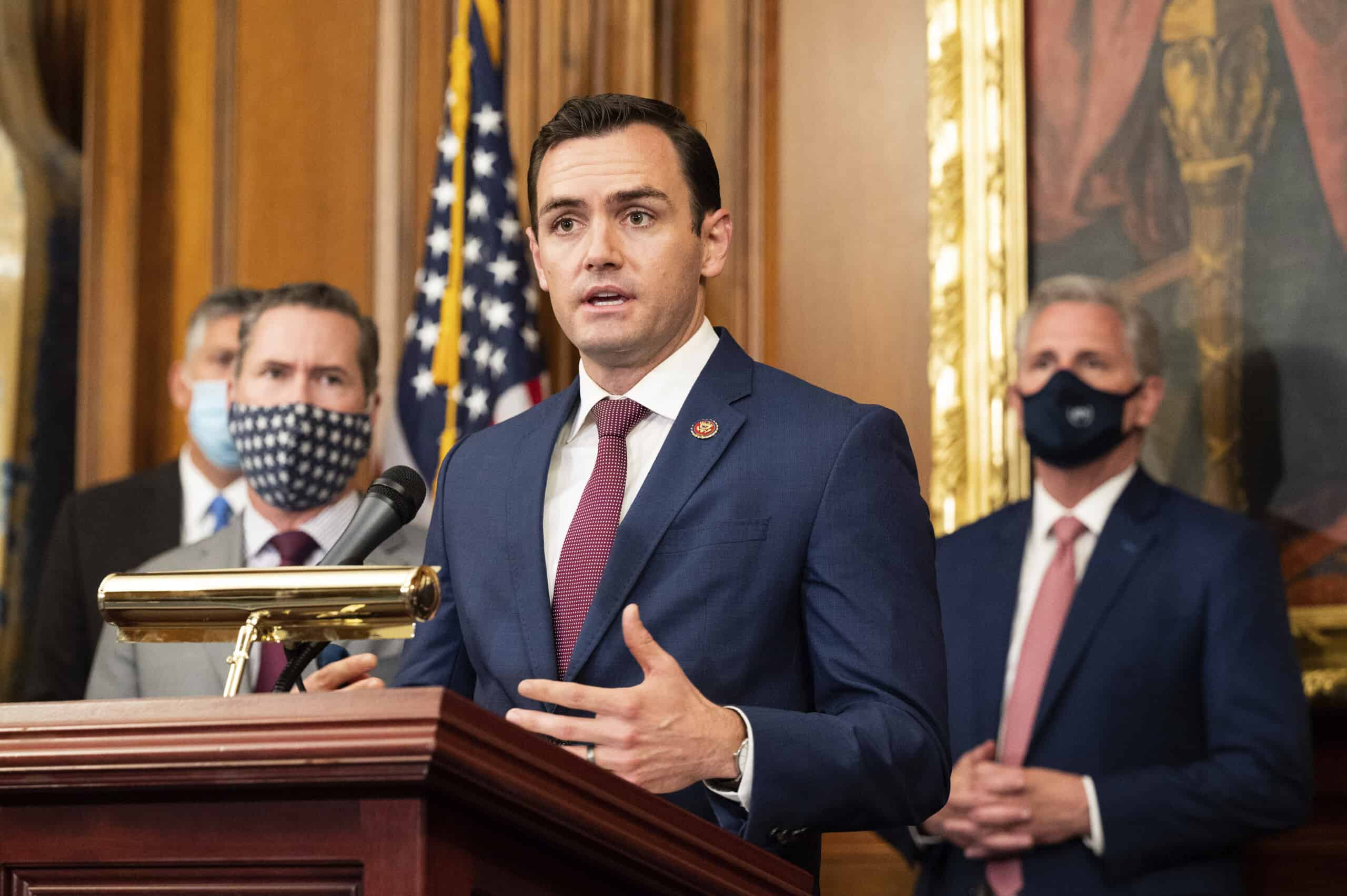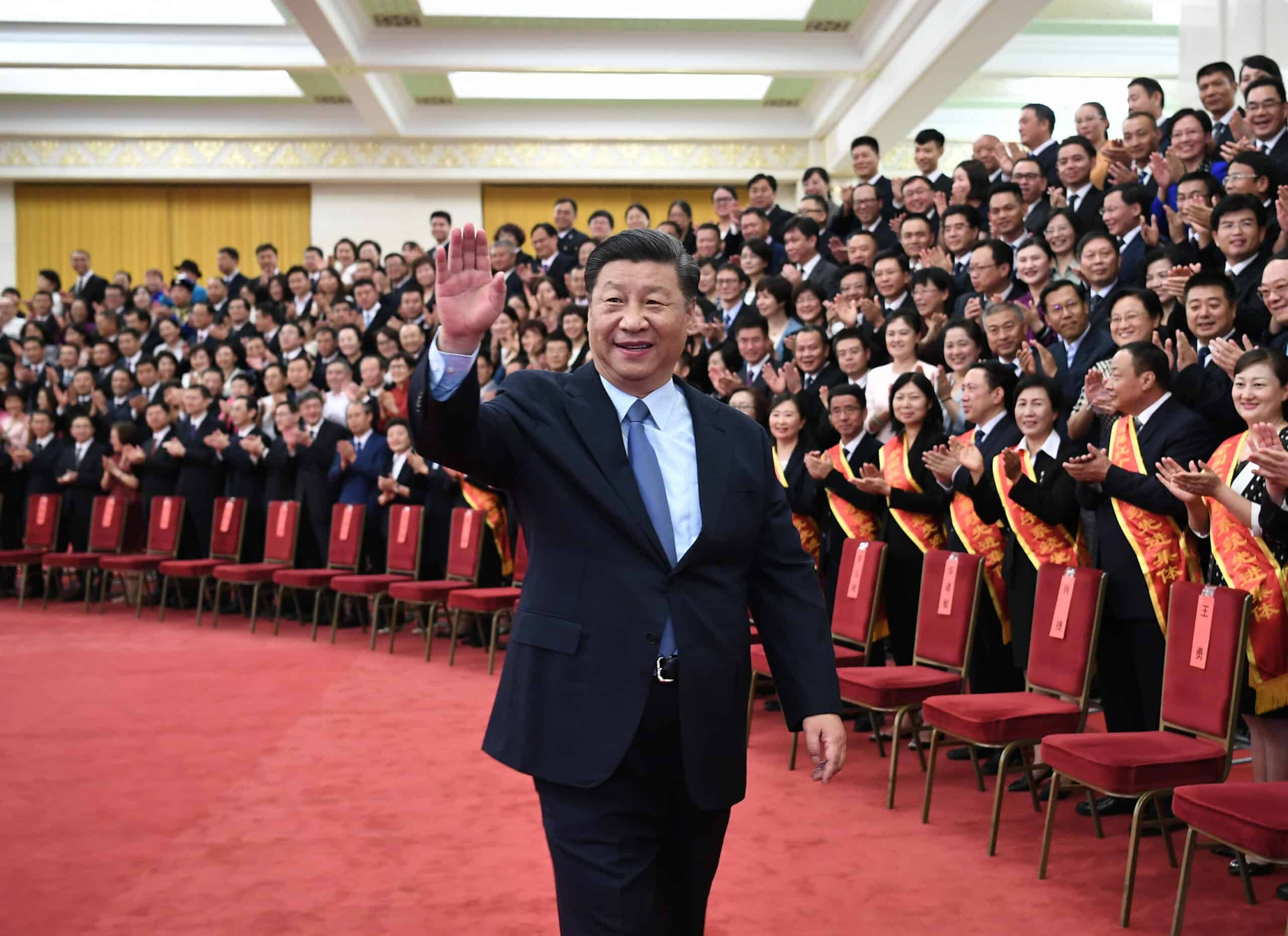Good evening, and happy New Year. In November, German Chancellor Olaf Scholz was the first Western leader to visit Beijing since the COVID-19 pandemic, and he traveled there with a delegation of business leaders. The visit was a sign of Germany’s special relationship with China, but it also belied the debate stirring in both the business community and the government back in Germany. As our cover story this week shows, Germany’s special relationship with China could be at a breaking point. Elsewhere, we have infographics on BYD’s big international bid; an interview with Alex Joske about how China’s Ministry of State Security operates; a reported piece on the House’s new China agenda; and an op-ed about the political ramifications for the CCP from Xi Jinping’s long reign. If you’re not already a paid subscriber to The Wire, please sign up here.
Want this emailed directly to your inbox? Sign up to receive our free newsletter.

Mixed Messages
Among Western countries, Germany has long had a unique relationship with China, both economically and politically. But with cracks emerging in the historically powerful pro-engagement alliance between German politicians and business leaders — and the tension increasingly spilling into the public arena — some say Germany is facing a significant turning point. Isabella Borshoff reports.

The Big Picture: BYD’s Big International Bid
BYD is a formidable conglomerate and China’s most successful electric vehicle maker. This week’s infographics by Eliot Chen look at the company’s origins, how it sidestepped supply chain woes to dominate China’s EV market, and its hopes of becoming China’s first internationally successful car company.
A Q&A with Alex Joske

Alex Joske is an analyst who studies Chinese influence operations and the author of Spies and Lies: How China’s Greatest Cover Operations Fooled the World. He is now a senior risk advisor at McGrathNicol, a firm that advises clients on geopolitical and foreign interference risks. In this week’s Q&A with David Barboza, he talks about China’s unique approach to intelligence operations; how George Soros inspired him; and the integration between business figures and intelligence in China.
Alex Joske
Illustration by Kate Copeland

The House’s New China Agenda
When the Republican Party takes over the House of Representatives in January, the new group of lawmakers will bring a wide-ranging — and decidedly hawkish — China agenda with them. And as Katrina Northrop reports, the Republican lawmakers’ heightened rhetoric and hawkish proposals could constrain President Joe Biden at a critical moment.

Endless Rule
In the past, top leadership changes in China created uncertainty about potential winners and losers in the promotion tournament, which created incentives for policy innovation. But, as Victor Shih argues in this week’s op-ed, with the perpetual leadership of one person (Xi Jinping) and predictable patterns of promotion among senior officials from now on, that the vast majority of party officials will focus on minimizing risks instead of taking policy initiatives to enhance performance. In this sense, Shih says, China’s Covid policy gave us a taste of policy making for years to come.
Subscribe today for unlimited access, starting at only $19 a month.



